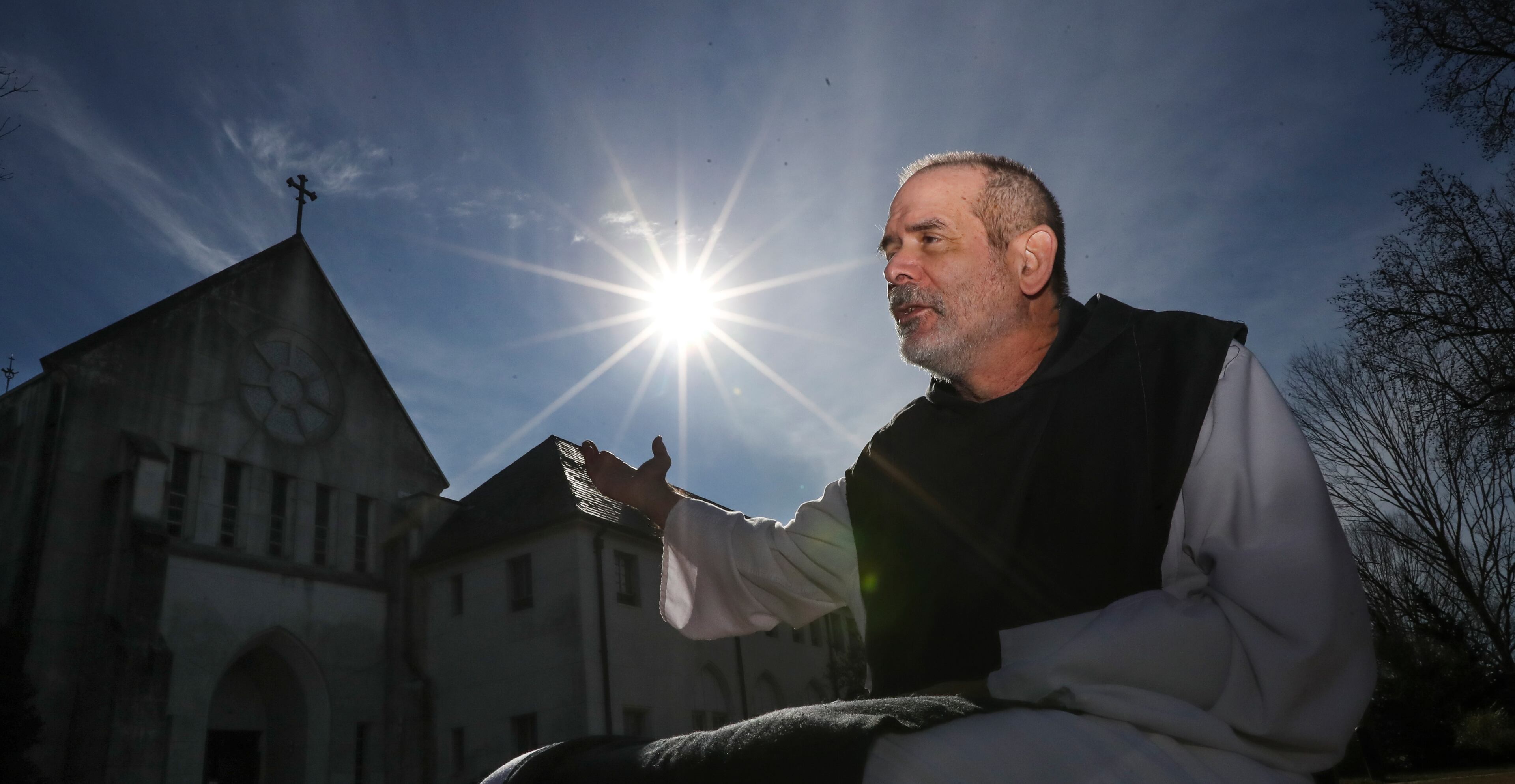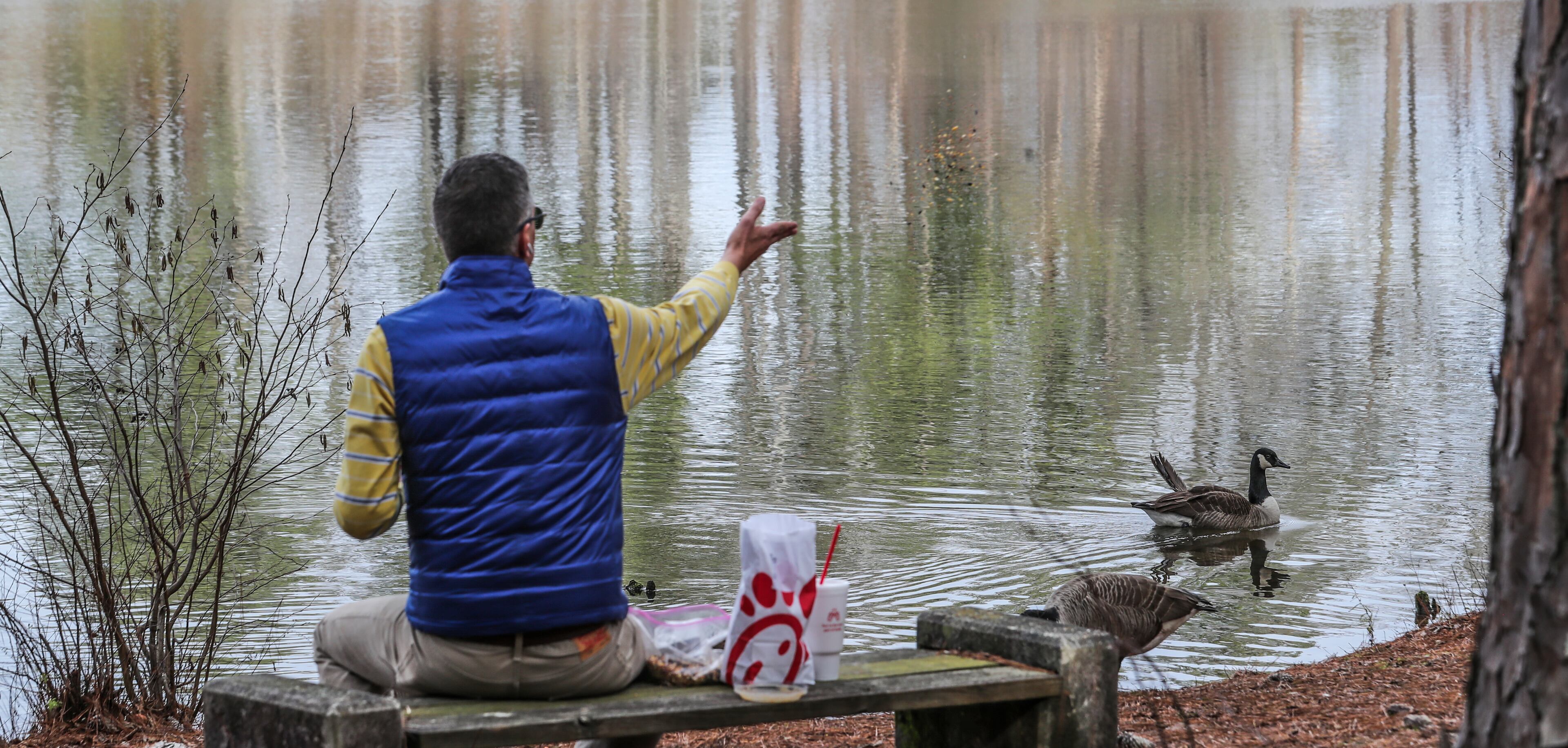Trappist monks find new meaning during pandemic










When COVID-19 led health officials to urge people to shelter in place, it even affected the already-cloistered monks at the Monastery of the Holy Spirit in Conyers.
Public prayers and services with the monks ground to a halt. The gift shop and museum closed, all spiritual retreats were canceled or held via Zoom, and a food pantry stopped operations.
Sheltering in place “brought us closer to our roots — to the very foundation of monastic life,” said Brother Callistus Crichlow, who has been in the order for 30 years. “It’s a life of prayer and separation from the world. I use separation in a positive sense of being alone with God.”
The Trappists live a cloistered life, meaning there’s little, if any, contact with the outside world. There is an emphasis — not a vow — on silence and solitude.
The monastery in Rockdale County was established in 1944 by a group of Roman Catholic “brothers” who traveled from the Gethsemani Abbey in Kentucky.
“We stay here. We live here. We die here,” said Abbot Augustine Myslinski, one of 28 members of the Order of the Cistercians of the Strict Observance, commonly known as the Trappists. “We don’t go out much. We give our lives to God. We’re self sufficient. We earn our own money by the sweat of our brow as much as we can.”

The monks earn income through sales in the gift store and baked goods including fruitcake, biscotti and fudge. During the shutdown, the monastery phased out its bonsai garden center.
The monastery also receives donations from benefactors and friends.
But when COVID-19 hit, the monastery basically shut down.
“We just experienced a little bit more the silence and solitude of the monastic life during this journey, and a lot of the brothers have really welcomed that,” he said.
There was good reason to be cautious.
Several of the monks are in their 80s and 90s; and at least half are 60 or older.
Coronavirus has proven more serious for people over the age of 65 and those with preexisting health issues.
“If one of us gets it, we all get it,” said Crichlow.

Although all the monks got the vaccine, they don’t leave much to chance. They postponed such things as doctors’ appointments and business runs. Only two visited relatives outside of the monastery. Those who did leave had to quarantine in the guest house for four days after their return and until they were tested.
Crichlow said, so far, not one monk has contracted the virus. A Roman Catholic nun, who is also a dermatologist and lives in a small home on the property, was available to help those who needed care so they didn’t have to venture out.

The monks were able to spend more time praying and reading and, with fewer distractions, it brought them closer together.
Brother Michael Lautieri, who joined the order in 1996, said he learned more about the men with whom he lives. He learned, for instance, more about their interests, their families and even what books they’re reading.
The pandemic, he said, may force people to ask themselves the tough questions.
What is God trying to tell us through this pandemic?
What is good for my fellow man?
“God didn’t cause the pandemic, we did by the way we live, the things we do and don’t do,” he said. “It’s not just what’s good for me, but what’s for the common good of humanity. Spiritually speaking, even here in the monastery, I can’t just do what I want to do. Whatever I choose to do, I have to take into consideration the rest of the community.”
He also hopes the pandemic will allow people to become more comfortable with silence and solitude. “There’s always noise and distractions. For some people, silence and solitude can be kind of scary.”

Recently there’s been more activity at the monastery, as it emerges from the lockdown.
The new omicron surge has meant the food pantry is closed indefinitely. The retreat house will resume operations sometime this year, the same time as the Abbey Church reopens. The gift store and museum have reopened.
The shutdown allowed the monastery to also move ahead with renovations to its 63-year-old Abbey Church, which hadn’t had an update since it was built by the earlier monks. The church was kept open to allow people to come in and meditate and pray.
It has launched a capital campaign to complete the $2.5 million renovation, which will include new choir stalls and pews and adding bathroom facilities.
The monastery attracts more than 80,000 visitors annually, according to Crichlow.
Among the visitors is Rhett Barnwell, who sometimes walks around the monastery’s serene grounds or stops to pray and meditate inside the Abbey Church.

“To me, just walking on the property was like walking on holy ground,” said Barnwell, a church musician. “I missed being able to go into the church. Just walking into the church made me feel like I was in the presence of God. Not being able to go into such a spiritual place made me very sad.”


